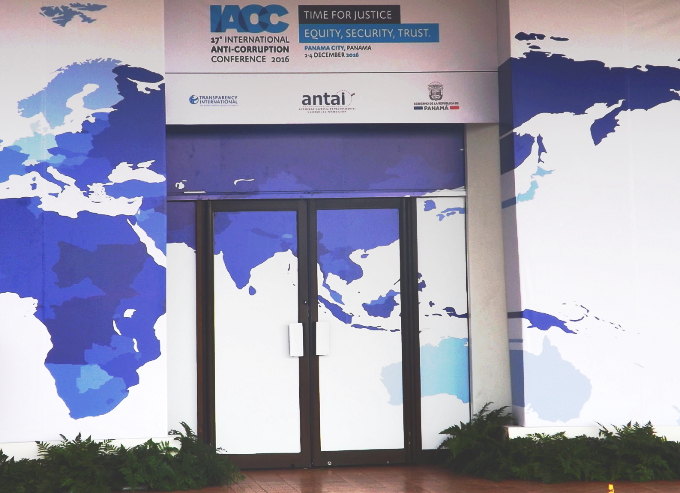
Transparency also has its privileged ones
by Marco Gandásegui, hijo
Panama was recently the scene of an international meeting of organizations that promote transparency in governmental and business activities. The conclave presented recommendations and made various pronouncements about the hardly transparent conduct of politicians and businesspeople. Basically, it was a big simulation event.They didn’t touch the basic problems like the corruption and manipulation by the multinationals of the laws and regulations of all countries, from the center (the developed countries) to the periphery (the underdeveloped world).
In the case of Panama, the conference host, the experts forgot to examine the multinationals that operate in the country without paying taxes, with the blessing of the government — Panama Ports, Minera Panama and many others. The people at the conference did examine the case of Mossack Fonseca, which provides services to those who want to open covert shell companies in tax havens, including in the USA.
Tax evasion by transnational corporations is an important cause of inequality and poverty. The Apple case in Ireland is a good example. According to the economist Claudine Gaidoni, the multinationals violate human rights by using tax avoidance methods.
The recent Apple case, in which the European Commission ordered Irish tax authorities to recover $14.5 billion from Apple as unpaid taxes, has once more directed attention toward the phenomenon of tax evasion by multinational corporations. In 2014 Apple paid 0.005% in corporate taxes on its assets registered in Ireland.
In 2014 tax authorities in Luxembourg approved special resolutions to permit multinational companies to pay less tax in that country. Something similar happened with Starbucks in Holland. In 2016, Belgium granted selective tax advantages to at least 35 transnational companies.
In the case of Ireland, the US government took the side of Apple against its own interests. At the same time, an army of lawyers and accountants has been busy punching holes in the tax codes of all countries where such companies operate. The European Union estimates that corporate tax evasion costs it $75 to $100 billion a year in lost taxes. According to Oxfam USA, tax evasion by transnational corporations costs the United States approximately $150 billion a year, while developing countries lose $140 billion a year in unpaid taxes.
In his book The Hidden Wealth of Nations, the French economist Gabriel Zucman said that “55 percent of all profits of North American businesses are in tax havens today.” The Offshore Shell Games 2016 study tells us that the Fortune 500 companies have almost $2.5 trillion in accumulated profits tucked in offshore accounts.
The existence of murky tax rule and an extreme concentration of wealth in tax havens, Gaidoni explains, means that citizens all over the world are deprived of their economic, social and cultural rights. Moreover, they lose civil and political rights, such as the right to be informed and to participate in political decisions.
If multinational corporations of US origin register their profits in several tax havens, they do it to avoid paying taxes in the USA. The Offshore Shell Games 2016 study reveals that Apple recorded $214.9 billion in offshore accounts, of which $65.4 billion was taxed by the US Treasury. Why doesn’t the United States take action to combat this? It has the means to make the multinationals pay their taxes. Why don’t they do it?
Ecuador proposed to create an intergovernmental entity at the United National to avoid tax havens and to adopt a binding international law to deal with multinational companies that have violated human rights. According to Gaidoni, “the connection should be clear: multinational corporations can violate human rights in many way and tax evasion is one of them.” Sadly, the transparency experts meeting in Panama didn’t touch these basic issues.
When talking about transparency at these conferences, multinational corporations operating both in the region and in US tax havens are untouchable.
~ ~ ~
These announcements are interactive. Click on them for more information.










